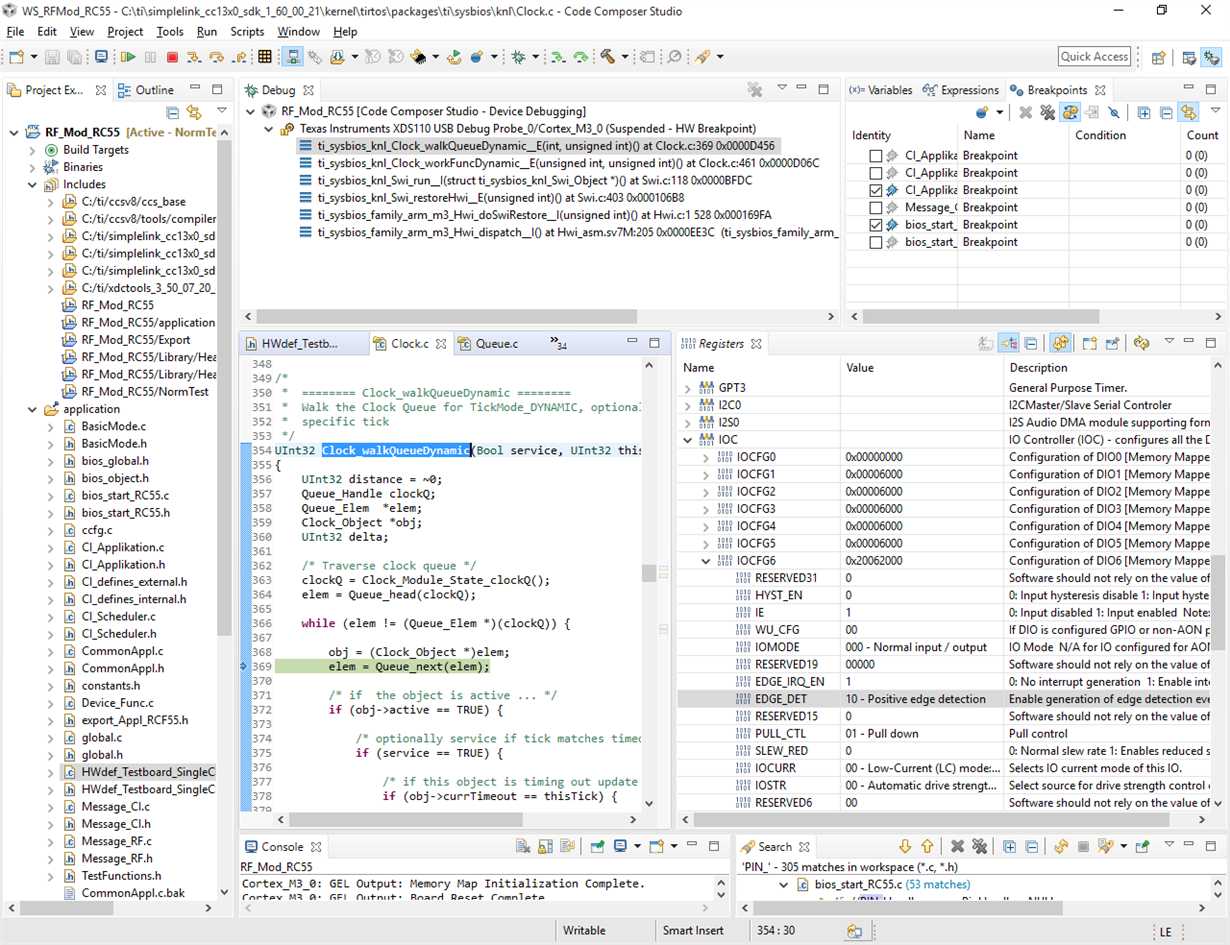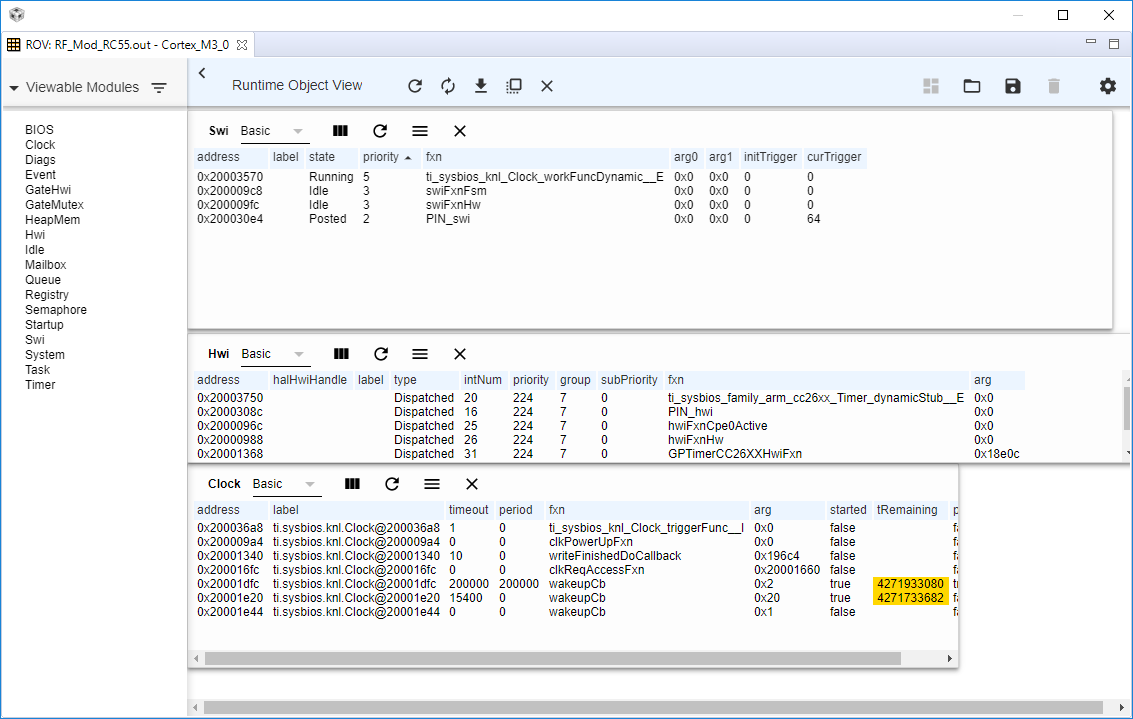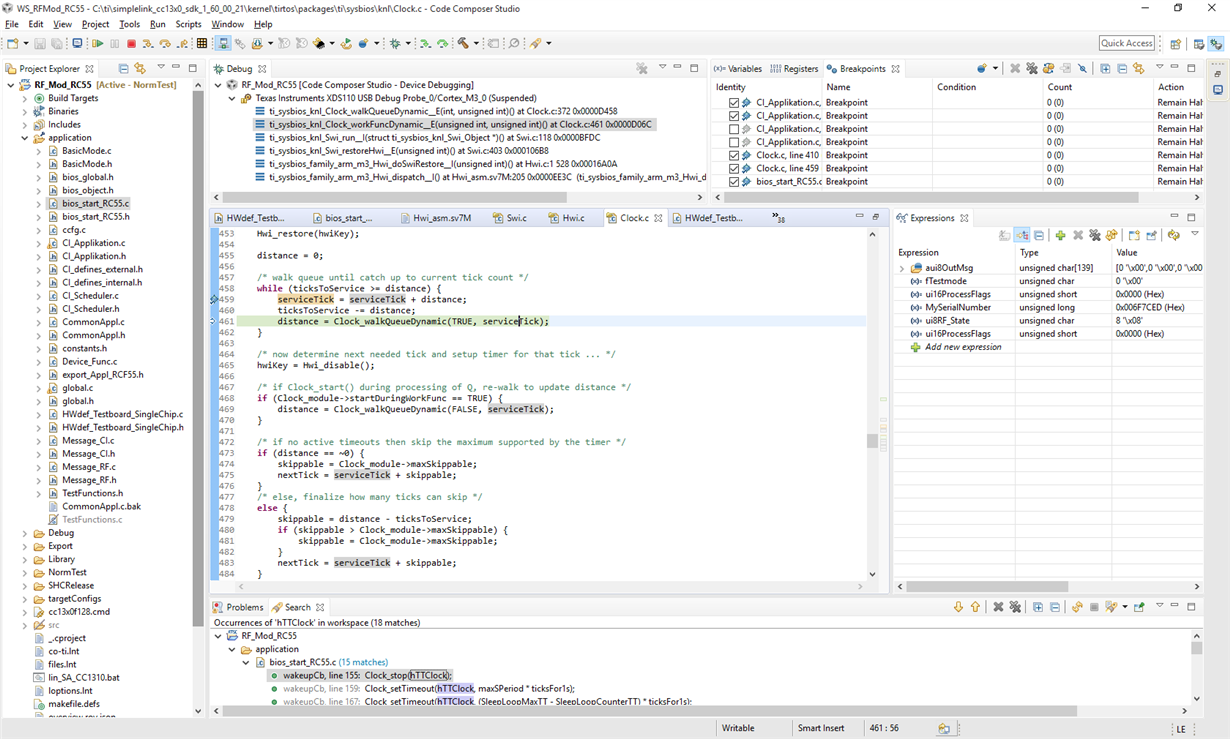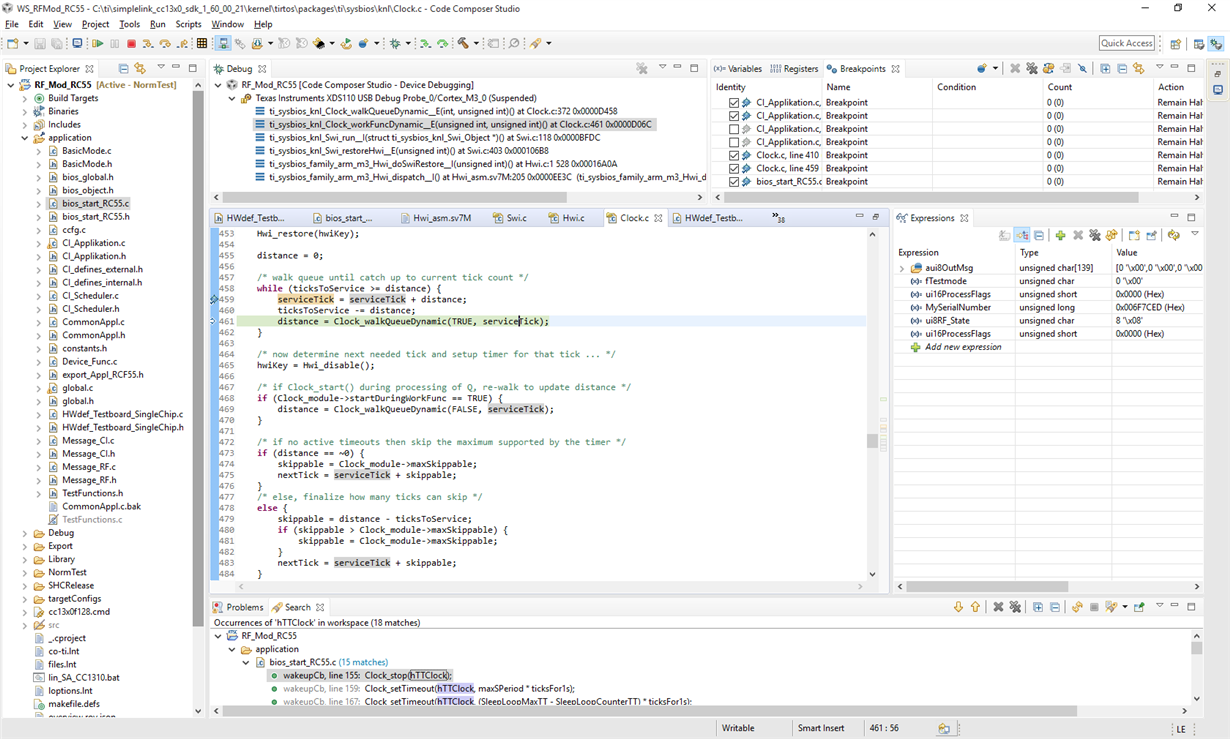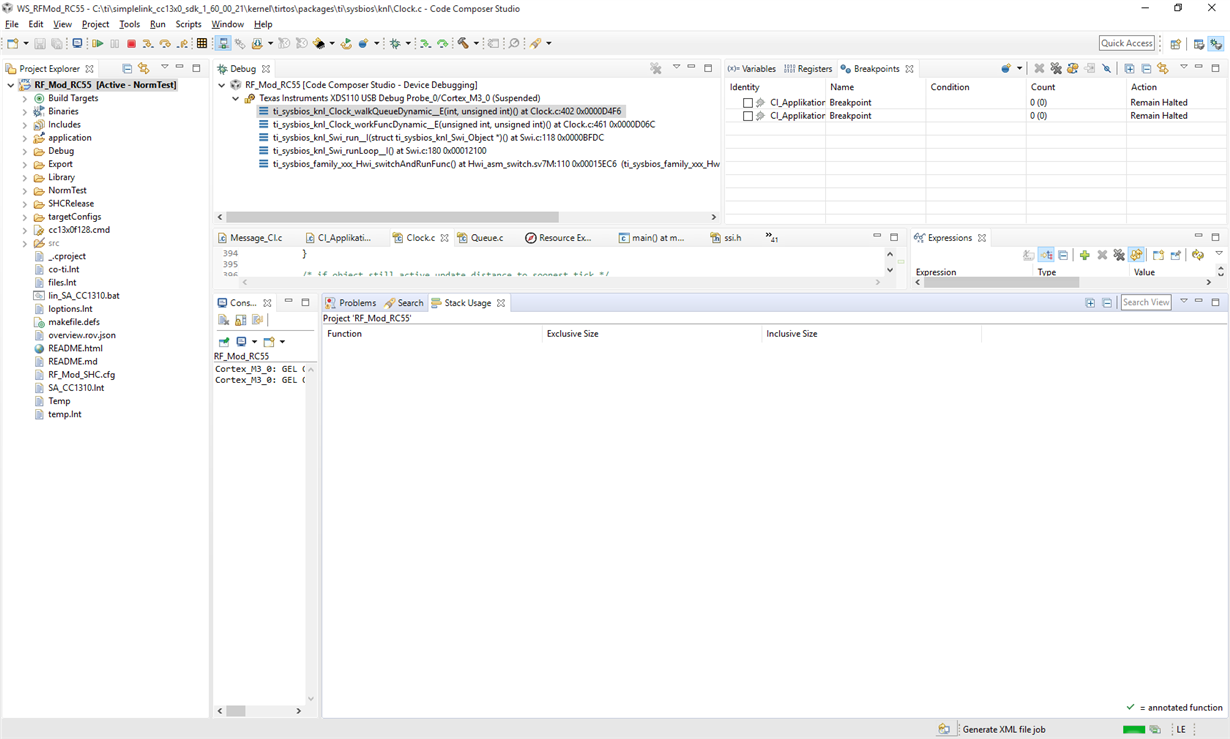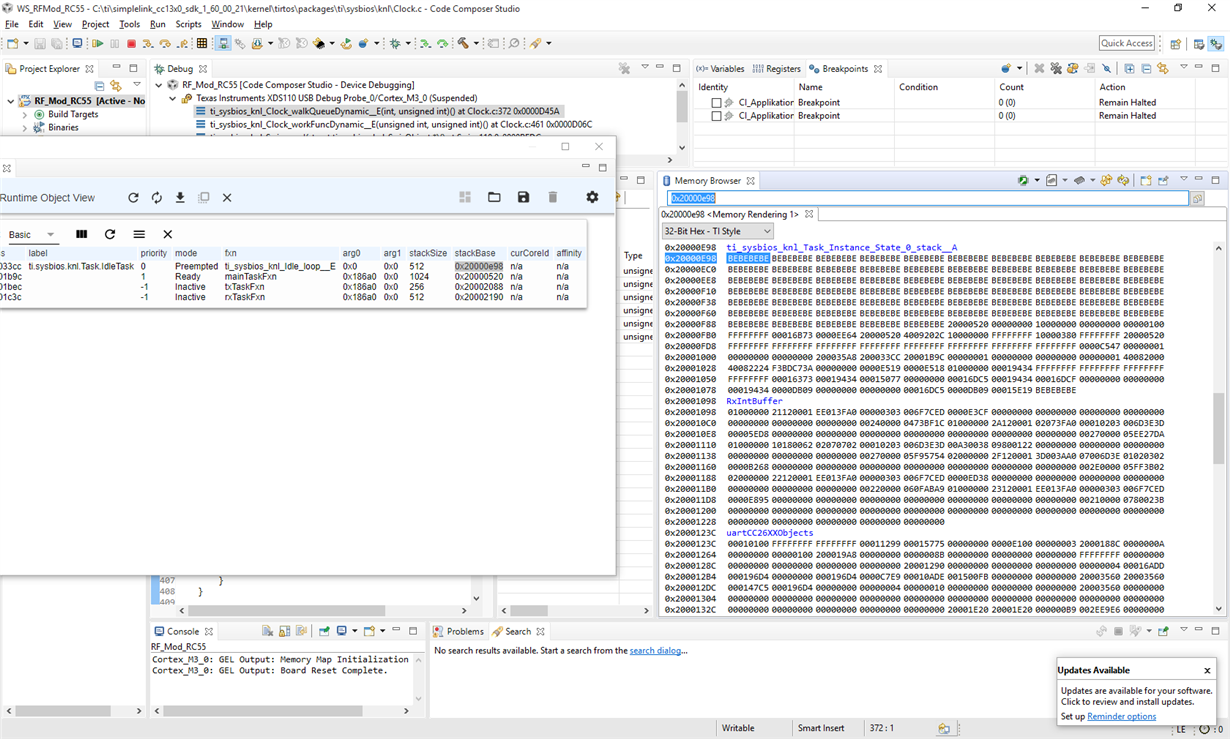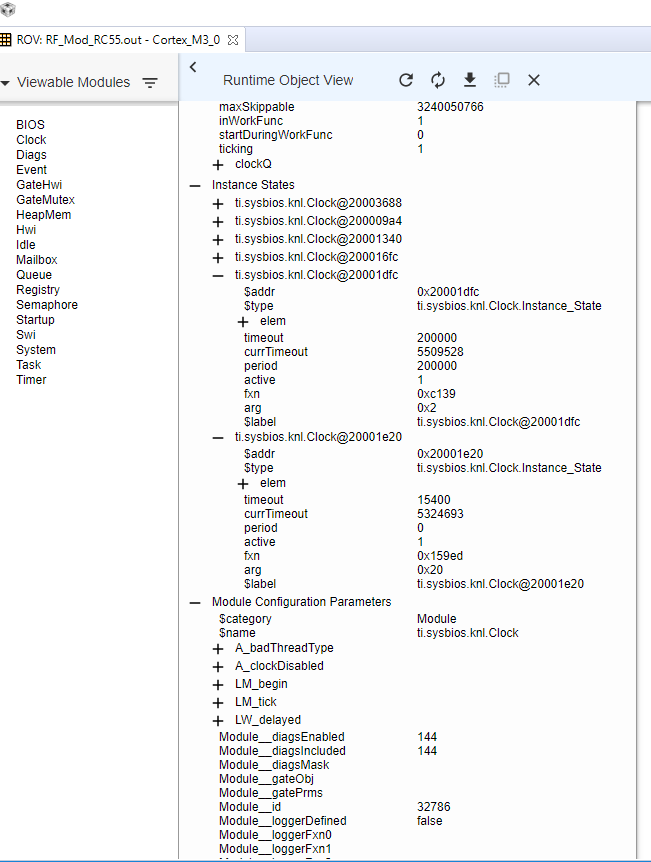Tool/software: TI-RTOS
Hello All,
my programm always ends in the TI Rtos function "Clock_walkQueueDynamic" and it does not react on other SWI's. I do not have an idea, why this happens. Does anybody can help?
Some Informarion
CCScreenshot:
Here is also a ROV Screenshot which may help.
BR and thanks in advanced,
Noge


